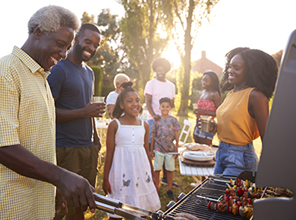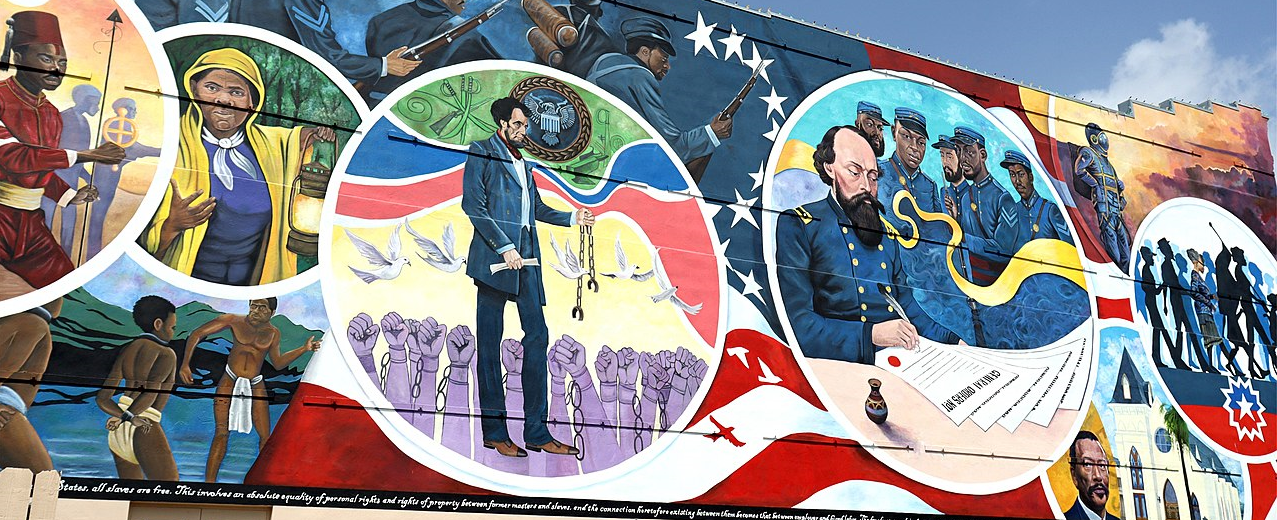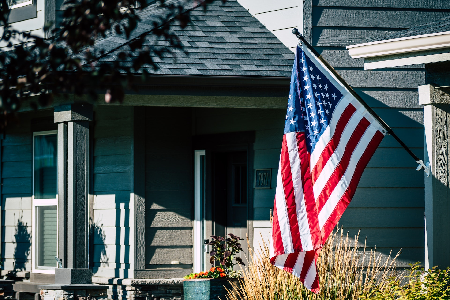Realogy Military Rewards is honored to recognize Mark McPherson for his three years of service in the United States Marine Corp. Please read his perspective piece on the importance of the Juneteenth federal holiday.
Juneteenth’s History
Juneteenth is the oldest nationally celebrated commemoration of ending slavery in the United States, and African Americans have celebrated it since the late 1800s.
The official name of the federal holiday is Juneteenth National Independence Day. You may also hear it referred to as Emancipation Day, Freedom Day, Jubilee Day, Black Independence Day, and Juneteenth Independence Day.
The name Juneteenth is short for June nineteenth. This was the day when federal troops arrived in Galveston, Texas, in 1865 to take control of the state and ensure that all enslaved people were freed. Texas was a state that did not have a significant Union presence and experienced little fighting during the Civil War compared to most other southern states. In fact, many slaveholders fled to the state during the event. The troops’ arrival came a full two and a half years after signing the Emancipation Proclamation, and they found enslaved people still subjugated by their masters. The enslaved people had no knowledge they were free.
The sweet news that they were freed from bondage was tainted with the bitter taste that they had been deprived of their potential for over two years—another blow to their humanity. This was the beginning of the unfairness that would continue to evolve for African Americans throughout our history in blatant and surreptitious ways.
Historically speaking, there are a small number of events that we can compare to the weightiness of the abolition of slavery in our country. Few events have had such an impact on the political and social landscape of the country.
I grew up in the Northeast, and I had never heard of Juneteenth until I moved to Texas for the first time in 1995. I was confused. Something so profound in the African-American experience was not broadly known except by the lucky children who heard about it from their families who had migrated from the South.
Juneteenth is Federally Recognized

As of 2021, Juneteenth has become a federal holiday, which means banks and other businesses are closed. Their employees are given the anticipated three-day holiday weekend. We generally use that time for barbecues and to laugh with friends and family. Perhaps we get some yard work done or finish up those household projects we haven’t gotten around to. Maybe we even catch a sale in “honor” of that holiday weekend. I don’t begrudge anyone of that. I would just like to give you some food for thought.
We have holidays that are looked at with reverence, respect, and acknowledgment—no different than Memorial Day, where we may take a moment to honor the ultimate sacrifices of our service members or thank veterans for their service during Veterans Day. On the Fourth of July, where we adorn lawns and porches with flags, we honor the birth of our nation. How could we collectively show our respect for this holiday?
Celebrating Juneteenth in a proper perspective may be very difficult for many people to do. Isn’t it a holiday only celebrated by black Americans? Would it be disrespectful or awkward for someone who isn’t black to celebrate this time? After all, that moment in history is a stain on our country’s history, isn’t it?
Sometimes we fear learning and acknowledging the cultures within this melting pot that make this “grand experiment” so diverse and rich in history. For example, Cinco de Mayo, or May fifth, is a holiday that celebrates the date of the Mexican Army’s May 5, 1862, victory over France at the Battle of Puebla during the Franco-Mexican War. The day is also known as Battle of Puebla Day. This significant piece of Mexican history has evolved into a commemoration of Mexican culture and heritage, particularly in areas with large Mexican-American populations. It has very little to do with 3-dollar margaritas and all day drinking at bars. The tapestry of the cultures that make up the United States deserves to be explored, acknowledged, and recognized because it tells us that we each matter!
We all should pause to acknowledge the historical importance of the day. Maybe “commemoration” is a better word than “celebration” for people to use when it comes to Juneteenth. It should undoubtedly be commemorated.
How Can I Help?
If you are not African American, why not use it as a day to advocate for the political and systemic changes that lead to racial equality? Use Juneteenth as a day of action to help change racist policies and expand the fight against racism from social and institutional aspects.
Some argue that not all Americans should celebrate Juneteenth. After all, it was so long ago. It doesn’t affect me. The Civil War was long ago, and we are in a post-racial America. Therefore, celebrating Juneteenth is now irrelevant. If African-Americans are free today, why should I care?
Here’s why: the very fabric of our society and our country depends on common denominators. The shared dream of life, liberty, and the pursuit of happiness. We are ALL equal under our laws and the eyes of God, and we have a shared expectation of inalienable rights. Commemorating our freedom and the ideals of this great country benefits us all.
Living in the modern world should not mean that we no longer notice racial and ethnic differences or celebrate the histories of our diverse country. Let’s not be afraid of our differences but embrace them. Human beings are one species—one race biologically. Sure, we come in different appearances, but these differences don’t mean we can’t celebrate the history of our neighbors. Even though you may not be “directly related” to Juneteenth, we are all human and should all celebrate human achievement.
Even if you spend this holiday with friends and family or fire up the grill, I ask that you take a moment to think about the true meaning of this holiday and what you can do to be a part of the positive change forward.






